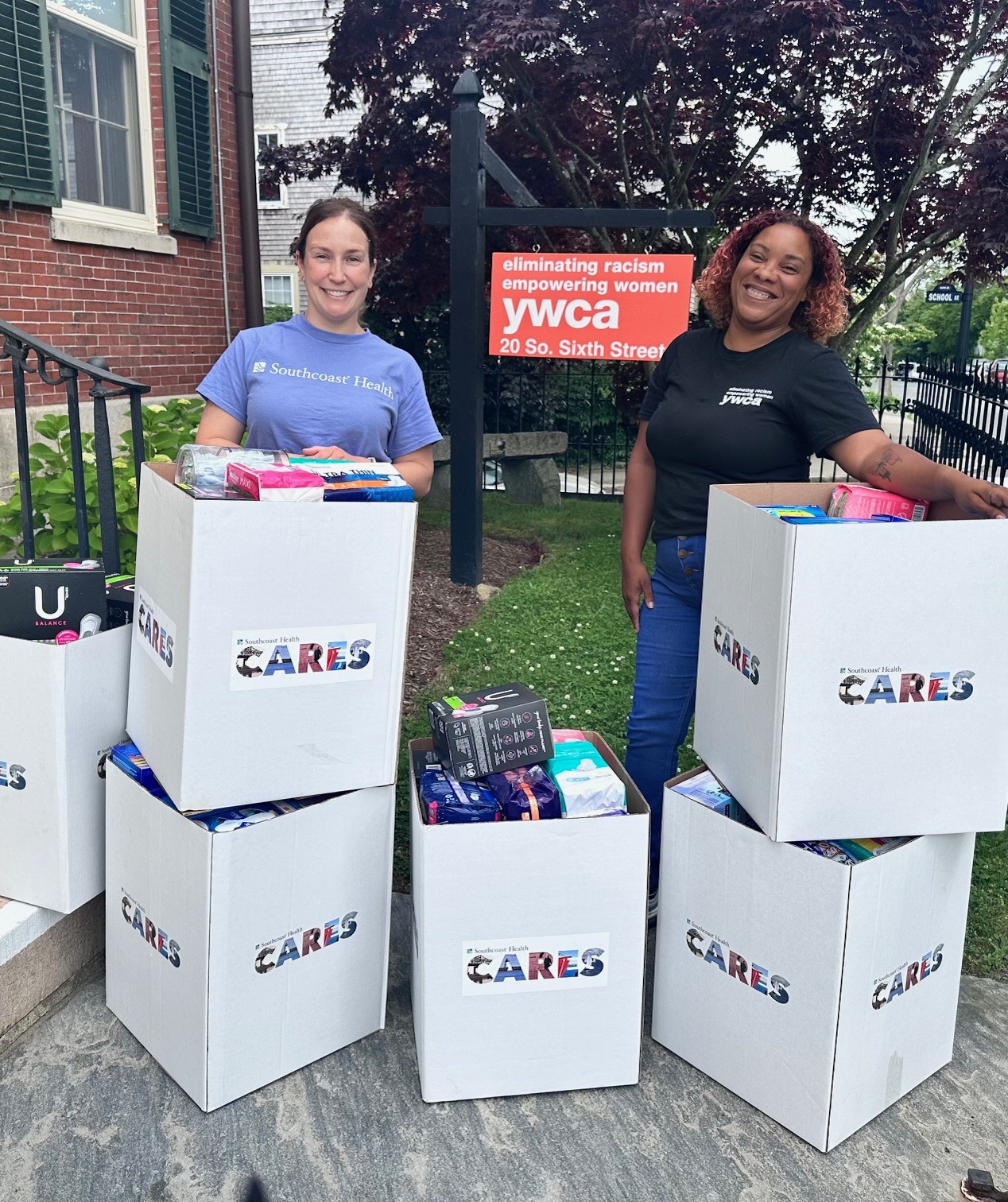Menstrual Access Advocacy Project
What is Period Poverty?
Many youth in New Bedford & across Southeastern MA are currently experiencing Period Poverty, which is defined by poor access to menstrual hygiene products & lack of menstrual knowledge. It is an issue that affects absence rates & can deny students their right to an equal education, as 1 in 5 girls are reported to stay home while on their period. In a survey of 285 individuals in New Bedford, over 60% reported missing school or work because of their lack of access to menstrual products, with over 60% experiencing humiliation & indignity due to their lack of access. For one girl in New Bedford who resorted to making pads out of socks with her mother, she still chose to stay home rather than risk the embarrassment of bleeding through her sock-pad. Situations like this reveal the wider impacts of Period Poverty which include increased risk of depression, anxiety, & other health problems. No one should have to miss school, risk their health, or compromise their dignity because of a period

What is the Menstrual Access Advocacy Project?
Since Fall 2018, the YWCA has been working with students, community partners, & supporters to expand access to menstrual hygiene products & raise awareness about Period Poverty. Our goal is to increase access to menstrual hygiene care and education by developing community partnerships, mobilizing volunteers, & raising awareness to shatter stigmas and limitations for women and girls, and to foster dignity, health, and opportunity for all. The project includes:
- An ongoing drive to collect menstrual products for women, girls, non-binary, and transgender people in our community
- A Menstrual Hygiene Management Curriculum that teaches youth and caregivers about reproductive health and menstrual hygiene management.
- An advocacy effort to change local, state and federal policies in order to make these products more affordable and accessible to all women.
 Each week packages with menstrual hygiene and other personal hygiene products such as hand sanitizer are distributed to women across the Southcoast through programs such as PACE’s Diapers and Things Program, or given directly to women in our residential program.
Each week packages with menstrual hygiene and other personal hygiene products such as hand sanitizer are distributed to women across the Southcoast through programs such as PACE’s Diapers and Things Program, or given directly to women in our residential program.
This reflects the YWCA’s values of giving women the tools needed to go confidently in the world, not having to worry about affording necessary hygiene products where price has shown to be a barrier in accessing products for about 14% of menstruators in the United States.
Why?
Because YWCA SEMA believes menstrual hygiene products are not luxury items. Without proper supplies, women miss work, girls and other menstruating students miss school, and life for homeless menstruators becomes even harder and less dignified. Access to menstrual products is both a health and an economic issue. The average lifetime cost of menstruation-related supplies is nearly $20,000 per woman. The cost is not covered by insurance. There are no current government assistance programs to help offset the cost of purchasing menstrual hygiene products. You can’t use SNAP, WIC, or Medicaid to pay for them. There is a clear need to change public policy to ensure that all menstruating individuals have access to the supplies they need to live dignified, productive lives.
The Menstrual Access Project is also a further extension of the YWCA’s work in endorsing the ‘I Am’ Bill, which is “An Act to Increase Access to Disposable Menstrual Products in Prisons, Homeless Shelters and Public Schools”. If passed, disposable menstrual products would be provided for free in these places.
Are you or someone you know in need of menstrual products? Or would you like to donate them?
Please reach out to the main office line at 508-999-3255 / email info@ywcasema.org
What legislation does YWCA SEMA advocate for to increase access to menstrual products?
Through nonpartisan advocacy efforts, the YWCA will continue to advocate for H.R.1882 Menstrual Equity for All Act of 2019, which among other things, would require Medicaid to cover the cost of menstrual products for recipients. Students are not the only menstruators who face barriers to access, which is why the YWCA has also been participating in a statewide movement to improve menstrual access through S1272/H1959 “An Act to Increase Access to Disposable Menstrual Products in Prisons, Homeless Shelters, and Public Schools.”

How can community members support this project?
Community members are invited to host their own Menstrual Hygiene Product Drive, or donate new, closed boxes of tampons, pads and menstrual cups. The YWCA collaborates with community partners to distribute supplies throughout our region. Community members can also join us in our Advocacy efforts by reaching out to their local legislators and joining us at events like National Period Day.
Why are Menstrual Hygiene Donation Drives so important?
The drives are critical to our ongoing mission of eliminating racism and empowering women. Access to menstrual products is both a health issue and an economic issue and we are fighting to make these products more affordable and accessible. Also, monetary donations allow us to purchase additional product and distribute to women, girls, and other menstruators in need in our community. We always have a need for donations and never turn them away.
Where is YWCA SEMA located and when is it open?
We accept donations at the YWCA Standish House, 20 South Sixth St., New Bedford, MA 02740. Our doors are open for product donations Monday-Friday 9:00am - 4:00pm.
The Menstrual Access Advocacy Project is funded by our friends at the Island Foundation. YWCA Southeastern MA is a proud member of the Massachusetts Menstrual Equity Coalition. The program is funded by MASS NOW.
